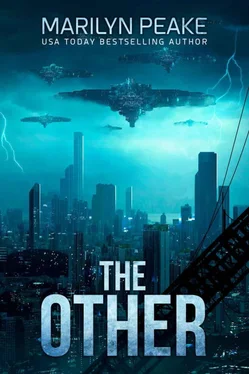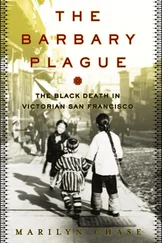Something had been happening to me over the years, but more recently it had become intense and problematic in work environments. I seemed to be able to read people’s minds. Not everything a person was thinking, thank God. That would have driven me insane. Rather, I had developed a keen sense of what was on a person’s mind, the thing they were most concerned about or most focused on. It spoke so loudly to me, I tended to respond to that, rather than to what they had actually shared with me. As I’d come to learn the hard way, the thing that’s uppermost in a person’s mind is often the exact thing they’ve been working hard to hide.
At the coffee shop, I felt that my ability to experience empathy had simply leveled up. Perhaps I had become a full-blown Empath. Maybe I was so bored with the job, my brain had grown an Empath section in order to keep itself entertained.
People moved through long lines to order caffeinated drinks, one after the other. Some days I served an extraordinary number of people. My interactions with them were brief. When I worked at the cash register, it was always the same combination of sentences or some close variation. I greeted them, asked what they’d like, answered questions, then gave orders to the person making the drinks. Some days, I was the person making the drinks. When we weren’t too busy, I did both.
I felt like a robot. Hello! What would you like today?...Hello! What would you like today? How many times could you repeat that same question and still be happy to wait on the next person?
I started paying attention to subtle clues about customers: a furrowed brow, facial lines, agitation, expressions of specific emotions like happiness or sadness. Also, things they said. For instance, if they said, “What’s good about it?” after I’d said, “Have a good day!”
Somewhere along the way, I’d moved beyond that. A person’s thoughts simply spoke to me. I didn’t need to analyze anything at all about their physical appearance.
Thinking I’d cheer them up when it was my turn to make the drinks, I started creating personalized designs in the creamy froth on top. A picture of a cat with the words: Never as bad as you think. A picture of a steam train with the words: Keep moving forward. A sun and the message: Today will be better.
Lots of people liked these. They’d peer at the designs and say how cool they were. Then they’d slurp down their coffees, my frothy messages coating their lips and fortifying them for the rest of the day.
But then I went too far.
My mother had died of ovarian cancer the year before. I was devastated and lonely and depressed. I focused on other people’s problems in order to forget about my own, even if only for brief moments at a time.
A woman in her early twenties came into the coffee shop. She had dark lines under her eyes and an expression of deep and abiding sadness. She was dressed all in black, and wearing dark purple eye shadow and matching nail polish.
I carefully crafted a picture of a tree with birds flying out from the branches. I wrote: On wings of hope.
She had ordered a mocha latte. Before leaving the shop, she carried her cup over to the counter near the back door with the sugars and pitchers of cream and took off the lid. I assumed she’d decided to add extra sweetener. Her eyes grew larger as she studied the message I’d created for her. Storming up to the counter, she demanded to know if all the coffees came with the same design.
I told my co-worker at the register, “I’ll handle this.”
Pushing open the swinging door that led to the main shop, I called the woman over. I already knew her name from needing to write it on the outside of the cup.
I raised my hand and called, “Elise!” over the noise of conversation in the coffee shop. I was trying to bring her over to a private spot to ask about her concerns.
She marched over and let me have it. All of it. She threw her latte at me, then tossed the cup on the floor, splashing my shoes with the remaining liquid. I thanked my lucky stars the coffee had started to cool and I was wearing a thick canvas apron. Her face screwed up in rage, Elise shouted, On wings of hope? On wings of hope? That was the name of my boyfriend’s band! This is what I get for coming to an elitist coffee shop! People who think they’re so cool, they can taunt the more lowly among us! It’s all over the newspapers that my boyfriend died of a heroin overdose last week! I know I’m a suspect! Fuck you! Fuck you! Fuck you!
On her way out the back door, she took her arm and swept all the metal pitchers and containers off the cream-and-sweeteners counter. They went bouncing off the glass wall and floor tiles, splashing cream and packets over customers’ feet and the side of a bin filled with coffee bags. Screams and gasps filled the shop, followed by silence. After the whoooosh sound of the door closing behind her, discussion erupted from the crowd like the buzzing of bees.
A few people left through the back door, several more through the front.
My boss was off that day, but of course he was informed about the incident. I was fired immediately. No questions asked, no being called into his office, no chance to explain. Just an email saying I was fired.
Maybe it was better that way. Perhaps Empaths didn’t belong behind coffee shop counters.
It was hard to get by financially without a job. After college, I’d returned home to live at my parents’ house. I kept referring to it that way: as “home” and “my parents’ house.” It really wasn’t anymore. My mother had died earlier that year. It was my father’s house now. He shared it with the ghost of my mother, and it no longer felt entirely like home.
I was devastated the day I lost my job. I decided not to fight back because I’d come to the conclusion I’d never fit in there anyway, better for me to go find something else.
I came home before my father got off work. I felt relieved because he’d never listen to me anyway. He’d just say things like, “Keep your chin up, little girl,” before escaping into the fog he’d created around him since my mother’s death. It was impenetrable. I desperately wanted to talk to him about our loss, but it was a subject he did everything to avoid. He’d say things like, “She was so brave at the end. It’s a lesson for all of us.” He wanted me to be brave, not incapacitated by grief. He didn’t realize that his refusal to talk about it kept grief growing inside me, like a malignant beast.
By the time I started painting messages on the frothy tops of coffee concoctions, I’d been experiencing intermittent stabbing pain on the right lower side of my abdomen for quite some time. I waffled back and forth from worrying it was a tumor to treating it like a new friend. I started imagining it was a benign tumor and the source of my blossoming empathy skills. I pictured it flooding my body with new hormones that eventually bathed my brain in the potential for new abilities.
Whether or not this was true didn’t matter. Our family’s health insurance didn’t cover much and I couldn’t afford specialists. I figured I’d ask my dad to pay for a checkup if the pain became too severe.
I suppose in some illogical, self-destructive way I also felt that the pain connected me to my mother. She’d had pain in the same place long before she ever got diagnosed.
I would have been more worried if I could have inherited cancer from her, but that wasn’t possible. My parents had adopted me.
The more I experienced the pain, the more I started thinking about my biological mother. Who was she? Why did she give me up? Could she help me now?
I went into my parents’ bedroom. I lifted the lid on my mom’s jewelry box, still sitting on her dresser, and watched the tiny ballerina in her pink skirt twirl round and round to the music. I remembered back to a time when I was four years old and had fallen off my bike. After cleaning and bandaging my bloody knees and elbows, my mom had taken me into her room and showed me the ballerina. Sunlight streamed in through the window and bounced off the mirror behind the miniature dancer. She came alive as she practiced her pirouettes. The sunbeams appeared to come from her hands, as though she was holding a magic wand. The little ballerina cast a spell on me. My pain disappeared.
Читать дальше












